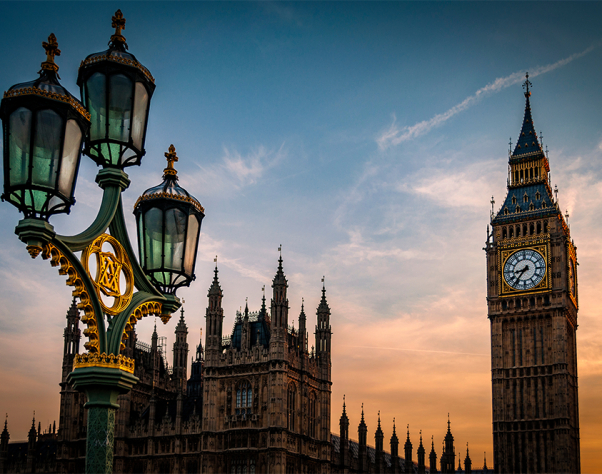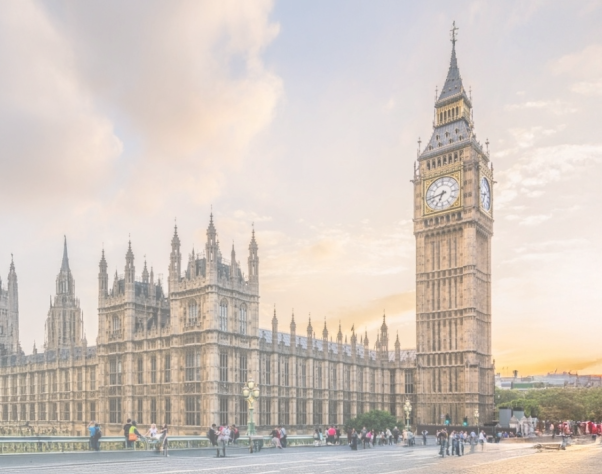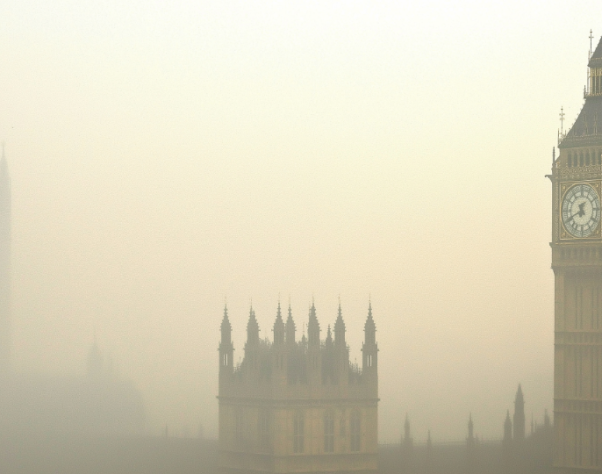Queen’s Speech 2021: Key sectoral and political analysis
The Queen’s Speech and the State Opening marks the beginning of a new Parliamentary session and its main purpose is to formally open Parliament and set out the Government’s legislative programme for the coming year.
While the Government’s legislative programme outlined today will be viewed through the prism of historic wins for the Conservative Party in Hartlepool and across the Midlands and the North East, the reality is much of the foundation work for today was done 18 months ago as the Prime Minister readied for his first electoral test. With a commitment to repealing the Fixed Terms Parliament Act though, this speech, more than others in recent times, is a platform for re-election and delivery for the Red Wall seats.
Like others before it, and those which will follow, today’s speech is as much about what isn’t said as it is about what is.
From the speech, what is clear is the Government has some clear and overriding priorities for the next year:
- Levelling up and infrastructure investment,
- Investing in green industries to deliver Net Zero as the UK prepares to host COP26 in Glasgow, and
- Putting its skills agenda at the heart of Covid-19 recovery.
But we also know there are some big challenges coming the Government’s way:
- Delivering social care reform,
- Putting public finances back on a sustainable footing,
- Planning reform and housebuilding, and
- Increased state intervention.
In the first Queen’s Speech since the UK left the European Union, the Government grasped the opportunity to establish its own frameworks. This includes state aid regulations on how the Government can support private businesses and a procurement framework guiding Government purchases of private sector services.
Tax breaks for employers based in the eight freeports to be established in England was also announced. Freeports are one of the Government’s landmark policy commitments from its 2019 manifesto and have long been championed by Chancellor Rishi Sunak and Trade Secretary Liz Truss. Freeports, and in particular the establishment of one in the North East, was a key element of the Conservative Party’s campaigns in the Hartlepool by-election and the Tees Valley Mayoralty.
As the Government looks to establish itself as the party of law and order, and following frustration in Conservative activists ranks following a range of protests in 2020 and early 2021, the Government will give police new powers over protests and new sentences for serious crimes. The Government will hope this will continue to drive a wedge between the Labour Party and its traditional heartlands, particularly over issues such as the removal of statues and the naming of buildings after historical figures.
While a reaffirmed commitment to levelling up and delivering Net Zero comes as no surprise, it’s clear Dominic Cummings has left his mark on the Government’s agenda. The skills agenda was a key policy priority for the Prime Minister’s ex-senior adviser, so the Government’s commitment to invest in research and innovation and provide a lifetime skills guarantee shows his legacy is still felt in Downing Street.
Not unexpectedly, the Government has reaffirmed its commitment to the Union. Going beyond seeking to send a message to voters in Scotland that we’re still better together, the Government is going to introduce legislation to strengthen devolved Government in Northern Ireland and address the legacy of the past. The Government will be keen, in this centenary year for Northern Ireland, to provide support for pro-Union parties as Northern Ireland businesses grapple with the challenges of Brexit unique to them.
Confirmed in recent days, the Government is pushing ahead with Constitutional reform and its manifesto commitment to repeal the Fixed Terms Parliament Act, giving the Government the power to dissolve Parliament and call an election at a time of its own choosing. Going further, the Government will introduce an Electoral Integrity Bill to force voters in Great Britain to show ID when they go to vote at General Elections. This is already shaping up to be a battle with attacks from the right, the centre and the left.
Levelling Up
Following its electoral successes in 2019 and last week, the Government is under increasing pressure to turn their commitment to levelling up into reality and deliver concrete improvements for their new voters. The freeports tax break (see above) is designed to encourage greater regional productivity and economic growth outside London and the South East.
As part of its commitment to levelling up, the Government announced continued investment in transport networks (see more below) and the extension of 5G mobile coverage. Poor coverage is a frustration felt by many voters in traditional Conservative heartlands.
Covid Recovery Measures
As Covid restrictions ease across the UK, the Government focused on a post-Covid agenda, linking recovery measures with its levelling up agenda. Cognisant of the long-term education and training impacts, there was a strong focus on retraining adults and helping young people recover the education lost when schools and training colleges were closed. In addition to giving children the best start in life, prioritising their early years, a commitment was made to ensure every child is able to fulfil their potential. The Government will bring in legislation to support a lifetime skills guarantee to ensure access to high quality education and training throughout people’s lives.
On the global stage the Government vowed to lead the global effort to secure a robust economic recovery from the pandemic and will use its role as host of the G7 in Cornwall in June to further this with more detail expected closer to the event.
Transport
Delivering better transport connectivity is a key element in the Government’s levelling up agenda and an important cog in its pro-Union strategy. The Government will introduce legislation to transform connectivity by rail and bus and affirm its commitment to the high-speed rail link between Crewe and Manchester. Where previously there had been expectations of a change to the rules that stop local authorities setting up bus companies or protections for consumers stranded when an airline collapses, the detail hasn’t been forthcoming today. Some of this will be a natural consequence of reduced numbers of travellers and that is also likely why a 2019 Queen’s Speech commitment to provide for minimum levels of service on railways during strikes hasn’t come forward again.
Housing
The much-anticipated Planning Bill which will introduce changes to the planning system in England was announced today. Setting the scene for a battle with some Conservative MPs, it includes a controversial zoning system, new design code guidance and the abolition of Section 106 contributions. The intention of the bill is to encourage housebuilding and prevent developments from being delayed or prevented by local opposition. The problem for the Government will be that, in Conservative heartland, the opposition is coming from their support base. The Government initially published proposals to reform the planning system in August last year but faced a huge backlash from its own backbench MPs who were concerned about increased housing targets and automatic approvals allowing controversial housing developments in their own constituencies. Conveniently, the Bill has been delayed until now to avoid the threat of campaigns against the reforms by residents’ groups in the local elections held last week. Passing this legislation will be a real test of the Government’s commitment to encourage housebuilding.
The Queen’s Speech also included the introduction of a long-awaited new system for regulating the safety of high-rise buildings, and inspecting construction sites, which will be set out in the Building Safety Bill. The recently passed Fire Safety Act included some cladding remediation for tenants but was controversial for not fully protecting leaseholders and the Government experienced significant pushback from senior Conservative MPs. Staving off a defeat, the Government assured backbenchers that the Building Safety Bill is the right vehicle to provide a more sustainable solution to the problem of removing dangerous cladding on high-rise buildings and will offer more comprehensive support for impacted leaseholders. Four years on from the Grenfell disaster, Conservative MPs will force the Government’s hand if they perceive the bill doesn’t do enough to protect leaseholders.
Energy
Following significant policy announcements in recent months, and the recent adaptation of ambitious new carbon emissions targets, it is not surprising this year’s Queen Speech had nothing new for the energy sector. As the UK readies to host COP26, the Government’s pledge to invest in the new green economy and work towards Net Zero carbon emissions by 2050 was reiterated and reaffirmed.
In coming weeks, the Government will publish its Heat and Building Strategy, outlining how the Government looks to decarbonise how we heat our homes and buildings. This comes as the Department for Transport readies to launch its Transport Decarbonisation plan in the coming weeks and BEIS prepares to launch its long-awaited Hydrogen Strategy before the Summer recess.
We are expecting the Government to legislate its Net Zero Strategy later this year. Insiders promise us it will be “comprehensive” and will detail how all parts of the economy will decarbonise in line with the national Net Zero emissions target for 2050. We expect the strategy to be published ahead of COP26.
Health and Social Care
The Government have been criticised in recent days for the apparent lack of mention of social care in the Queen’s Speech. Whether a hurried amendment was made, or its brief mention was always intended is unknown; however, despite its inclusion, the Government have not escaped criticism. The Government will bring forward legislation on tailored and preventative care, and care closer to home, with a commitment to closer integrate the social care system into the NHS. However, there is no bill to facilitate social care, merely a commitment to bring forward proposals. When he stood on the steps of Downing Street in August 2019, Johnson said the Government had a plan to reform social care; it looks like we’ll be kept waiting for a bit longer.
The Environment
There was a strong sense of déjà vu, with the Environment Bill appearing on the list of Bills for the coming year for at least the third time. With bipartisan support for key measures, and having had time to lay the foundations for bureaucratic changes, the Government will hope it can introduce and pass this bill fairly swiftly. Beyond this, legislation will be brought forward to ensure the UK has the highest animal welfare standards and to ban the export of live animals for slaughter.
The Conservative Party have a strong track record of reducing plastics but many environmental advocates will likely be frustrated there hasn’t been a greater focus on reducing plastic waste and packaging in the lead up to COP26.
Financial Services
With plans for negotiations around mutual access for the services sector following the UK’s departure from the European Union underway and key green finance initiatives in the Budget, it was not expected there would be major new announcements. Advocates of business rates reform will be frustrated the Government hasn’t built on its interim report last year into a review of the tax, but with the final report scheduled in the Autumn, it isn’t surprising the Government will seek to use an Autumn Budget or economic update to detail its agenda. Also missing was any discussion on the future of pensions, though given the ongoing debate in Government around how care is funded later in life, this is perhaps not so unsurprising.



